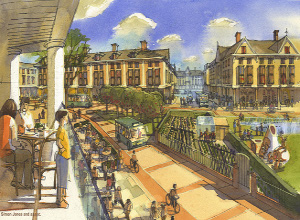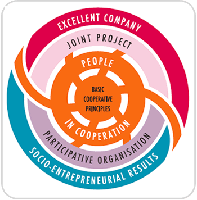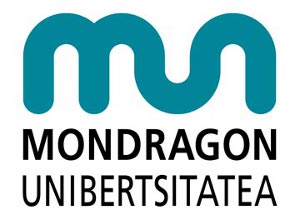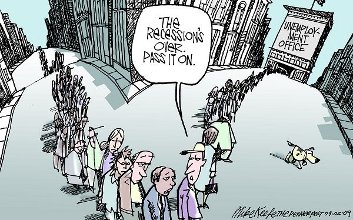Inspiring co-operative enterprise through education |
 |
 |
 |
| Home | History | Activities | Co-ops | 21st Century | Links | Resources | CETS |
Activities

- Arrange to go and visit a co-operative with my class/friends/teachers/family and write a report on how it is:
a) Helping the community
b) Acting in the interests of its members
c) Successful?
- Find out about their future plans. How do they see the role of co-ops in the 21st century?
- Do your community co-operatives have a service that may be provided to school in any way e.g. fair trade products provision etc?
- See if you can partner with your local community co-ops to create a co-operative awareness event.
- Are your local co-operatives environmentally sound? Are they ethical?
Co-operatives in the 21st Century
| We have explored the origin and history of co-operatives. We have also seen examples of different co-operatives accross the world. But what is their role in the future to come? How will co-operatives aid in changing our world for the better? | We have also looked at the activities of our local co-operatives as well as the co-operatives in lands of our international neighbours. Let's have a closer look at two organisations that can boast economic successes that outperform many conventional businesses in the world markets... |
Case Studies
| The Co-operative Group | |
| Co-operative Group is a unique family of businesses democratically run by over five-and-a-half million members, and who each have a say in how these businesses are run. With sales of over £13.7 billion, they employ over 120,000 people serving around 21 million customers per week in over 4,800 high street branches and through online shopping. | Their co-operative values influence the products and services of each of these businesses, showing that good quality products and value don't have to come at the expense of honesty and social responsibility. Ethical trading is what they are about. Their services include food, banking, travel, insurance, funeral care, legal and motors. |
| The Co-operative: There Is An Alternative |
The Co-operative Group is owned by its members, and twice a year they are rewarded with a share of the profits that they helped to create, based on how much they spent with the family of businesses, and how much the businesses made in profits that year.Our members are our owners. The members can voice what is important to them and also how the business is run. This is done democratically, providing members with what they really want from the businesses, and helping local communities to help themselves. Led by their values and principles, they work with members to tackle issues that are important to them – from helping the community to tackling global climate change. Membership is open to everyone as long as they share our values and principles. |
| Eco-towns is an example of the Co-operative Group helping communities endure into the future. It is helping the Government's response to the twin challenges of climate change and the drastic housing shortage faced in the UK. The aim is provide environmentally sustainable and affordable housing while challenging traditional thinking. Hopes are to raise the bar for developers, local authorities and local politicians alike; to ensure that communities are developed where people want to live; where they can enjoy a high quality of life in an attractive environment; and to address the wider issues of housing need, affordability, transport and the environment. Click on the artists impression for more info |
 |
| MONDRAGON | |
Mondragon Co-operative Corporation or MCC is network of worker-owned co-operative businesses in the Basque region of Spain employing over 90,000 workers and achieving total sales of €15.5 billion euro in 2008, with total assets of €33.3 billion euro. Despite these impressive figures, Mondragon came from humble beginnings. |
It was against the backdrop of post-civil war Spain, that José María Arizmendiarrieta, a young priest born in Marquina in the province of Vizcaya, arrived in Mondragón in 1941. In 1943, José María set up the Polytechnic School, now known as the Mondragón Eskola Politeknikoa, a democratically administered educational centre open to all young people in the region. In 1956, five young people from this school established, in Mondragón, the first production initiative which focused on the manufacture of petrol-based heaters and cookers. From here spawned the large organism that is now the MCC. The organisation has always operated on the Co-operative Values and Principles, and so grew through co-operation with other co-operatives under the umbrella of the Mondragon group. Click Here For More Information on José María Arizmendiarrieta |
| Mondragon Co-operative Corporation (MCC) is a modern day example of how alternative forms of business operating on community-based ideals can, and do work. MCC's very existence proves that not all individuals act out of pure self-interest and that people are concerned with their fellow citizens and community. Mondragon is also significant because it demonstrates that a large, successful organisation competing in the global marketplace, can do so whilst rooted in strong ethics and the values of democracy and care for community. |
|
 |
At Mondragon, there are agreed-upon wage ratios between the worker-owners who do executive work and those who work in the field or factory and earn a minimum wage. These ratios range from 3:1 to 9:1 in different cooperatives and average 5:1. That is, the general manager of an average Mondragon cooperative earns 5 times as much as the theoretical minimum wage paid in his/her cooperative. This ratio is in reality smaller because there are few Mondragon worker-owners that earn minimum wages, their jobs being somewhat specialized and classified at higher wage levels.
Although the ratio for each cooperative varies, it is worker-owners within that cooperative who decide through a democratic vote what these ratios should be. Thus, if a general manager of a cooperative has a ratio of 9:1, it is because its worker-owners decided it was a fair ratio to maintain
What do you think? Is this fair or unfair?
Click here to view a presentation of graphs from The Spirit Level by Wilkinson and Pickett. This book focuses on equality through international studies around health and well being in countries where there are very large pay differentials.
Conventional Vs. Co-operative
So How Can Co-operative's Help to Solve Issues Today and into the Future? Let us start by looking at some recent events| In 2008, began a world-wide economic recession driven by a credit crisis in the US and rising commodity prices. Many businesses suffered dramatically, as did millions of ordinary citizens through unemployment and financial insecurity. However co-operatively run businesses seemed to have the ability to weather the situation, with profits growing for both the Co-operative Group and Mondragon during this period. According to a report by the ICA, financial co-operatives have remained financially sound; consumer co-operatives are showing increased sales and workers co-operatives have seen growth in their business. |
 |
| So why is the co-op doing so well? History has shown us that the co-operative model has often been used in times of hardship as a way to combat the bad effects, such as was the case with the Fenwick Weavers and Rochdale Pioneers. This doesn't mean that the co-operative model only works in times of crisis, but it is the strength built up by cooperatives during the good times that helps tide them over a recession. The International Co-operative Alliance (ICA) calculated in 2004 – four years before the banking crisis – that the top 300 cooperatives in the world had around the same economic output or GDP (Whats this?) of Canada. |
Many attribute the co-op's success to its unique organisational structure, where it is democratically owned and controlled by its members. In this structure, decisions are made in the interest of its members and not in the interest of invisible shareholders so there are less risky decision. The organisation is guided to meet the needs of its members as well as benefit all stakeholders involved through ethical trading practices and the foundation of strong values. When the purposes of the business are aligned with those of members who are both investors and consumers of the cooperative, the results are loyalty, commitment, shared knowledge and member participation. |
- Consumer cooperatives are that they provide people with consumption goods at the lowest possible price and with a guarantee of good value, and so make their income go further.
- Producer cooperatives enable self-employed people and family businesses to gain the strength in numbers they need to survive in the market.
- Worker cooperatives provide people with an income, but also are a way of gaining control over the conditions under which they labour, providing 'decent work' .
- Multi-stakeholder cooperatives allow multiple parties (e.g. producer, consumer and worker) to collectively own an organisation. The sense of ownership can be motivational, leading to a more efficient and successful environment.
There has begun a trend to seek solutions to economic recovery through co-operatives, and this is already visible in the initiative of the United Nations to declare 2012 a UN International Year of Cooperatives in which the ILO's Cooperatives programme would hold the secretariat of the Year. On July 4th 2009, the international community celebrated UN International Day of Cooperatives which focused on the theme, "Driving global recovery through cooperatives".
Follow this link for a full report on the ICA's website